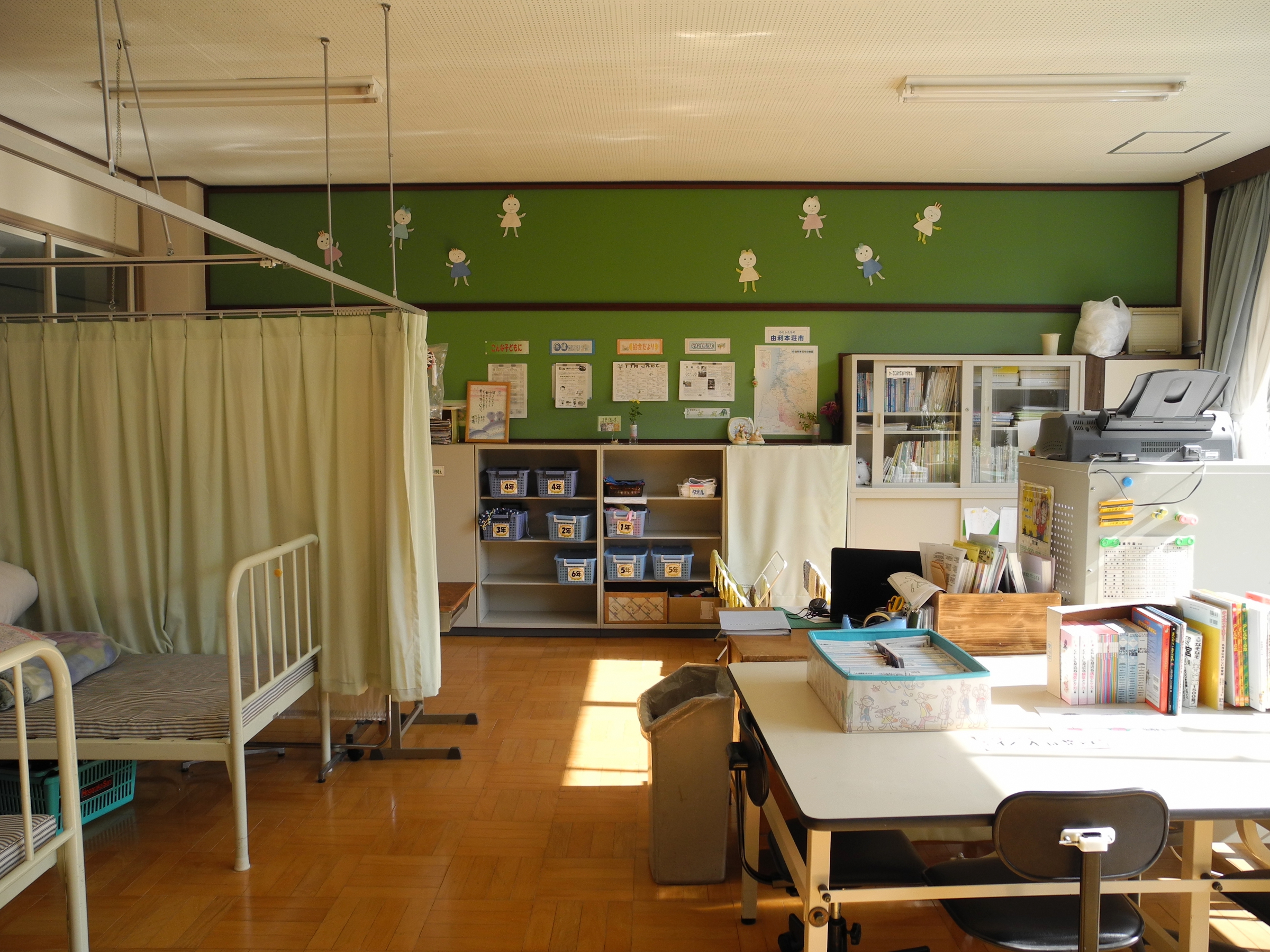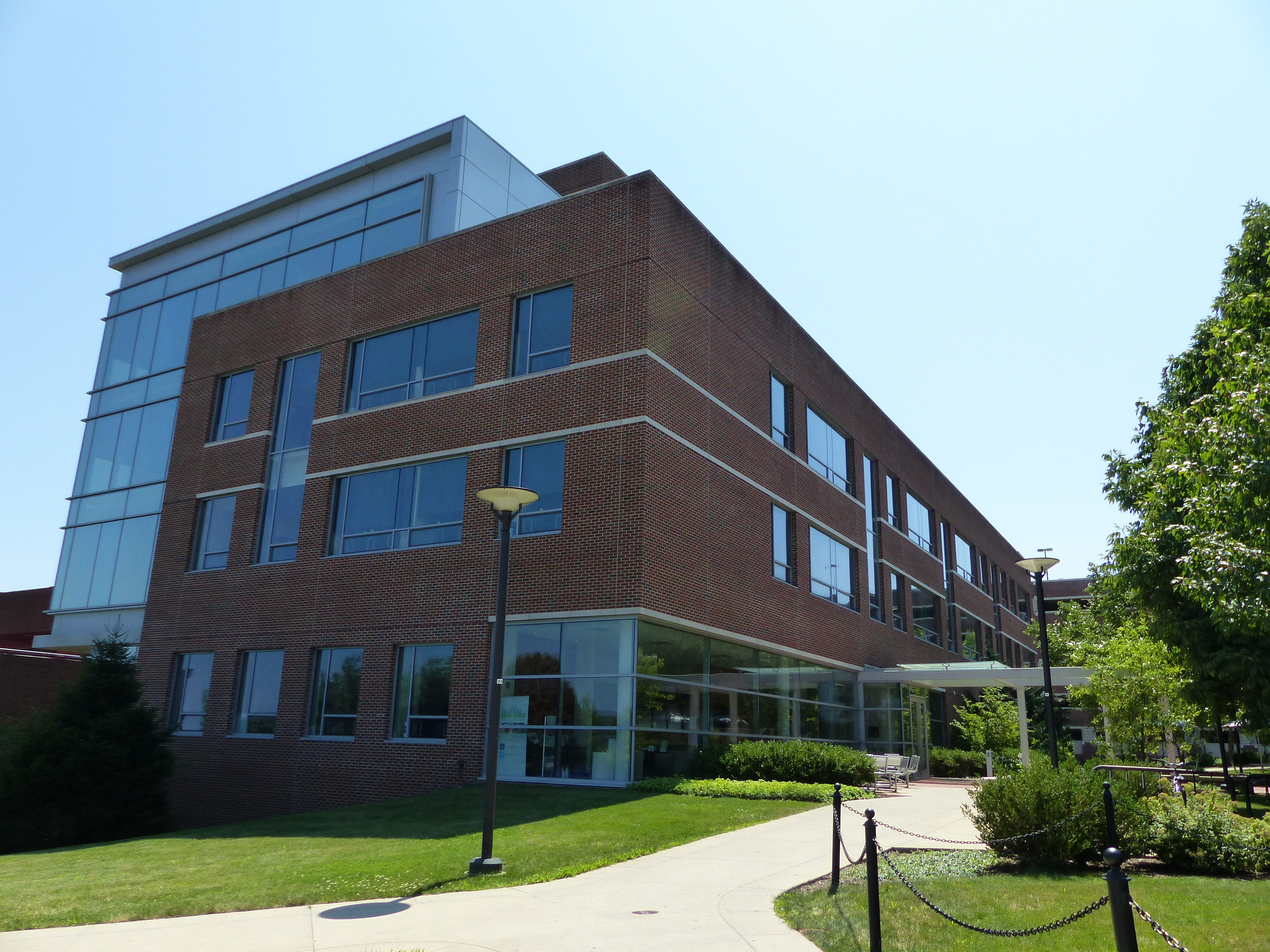|
School Nursing
School nursing, a specialized practice of public health nursing, protects and promotes student health, facilitates normal development, and advances academic success. School nurses, grounded in ethical and evidence-based practice, bridge the gap between health care and education, provide care coordination, advocate for quality student-centered care, and collaborate to design systems that allow individuals and communities to develop their full potentials. A school nurse works with school-aged children in the educational setting. Students experiencing illness or injury during the school day often report to the school nurse for assessment. Administering routine medications, caring for a child with a virus, or stabilizing a child until emergency services arrive after a more serious injury may all be a part of the job requirements. School nurses are well positioned to take the lead for the school system in partnering with school physicians, community physicians, and community organizatio ... [...More Info...] [...Related Items...] OR: [Wikipedia] [Google] [Baidu] |
Health Visitor
Health visitors are professional individuals engaged in public health work within the domestic setting, predominantly found in countries with state-funded health systems. They are distinct from district nurses, who provide clinical healthcare, domestically. Responsibilities Health visitors are mainly concerned with helping to ensure that people's domestic behaviour is sanitary, hygienic, and beneficial to the welfare of themselves and their families, particularly to their children. As their name suggests, they fulfill their role in the community, by visiting family homes, to give advice and support to all age groups. They have a key role with regard to safeguarding vulnerable people, as they are often the first experts to enter the homes of individuals at risk of abuse and neglect, especially children. A check at two years of age is now a major part of the standard provision. If the health visitor suspects that matters were serious enough to warrant child protection measures ... [...More Info...] [...Related Items...] OR: [Wikipedia] [Google] [Baidu] |
Community Nursing
Community nursing is nursing care delivered outside Acute (medicine)#Acute care, acute hospitals, for example in the home, within General Practice facilities, in community hospitals, in Arrest, police custody, at a school or in a Nursing home, care home. In the UK, a community nurse needs a degree approved by the Nursing and Midwifery Council, as well as 1–2 years’ experience as a qualified Adult Nurse. The job functions covered include: *Ambulatory care nursing *Assisted living *Faith community nursing *Flight nurse *Gerontological nursing *Home care *Home health nursing *Care Home Nurse *Community Children's Nurse *Community Mental Health Nurse (CMHN) *Community Learning Disability Nurse *Community Midwife *Correctional nursing, Correctional Nursing *District Nurse (DN) *General Practice Nurse (GPN) *Health Visitor (HV) *Homeless Outreach Nurse *Nurses working in unscheduled care, e.g. working with paramedics *Occupational Health Nurse *Palliative Care Nurse *Public Health Nu ... [...More Info...] [...Related Items...] OR: [Wikipedia] [Google] [Baidu] |
College Health
College health is a desired outcome created by a constellation of services, programs and policies directed at advancing the health and wellbeing of individuals enrolled in an institution of higher education, while also addressing and improving both population health and community health. Many colleges and universities worldwide apply both health promotion and health care as processes to achieve key performance indicators in college health. The variety of healthcare services provided by any one institution range from first aid stations employing a single nurse to large, accredited, multi-specialty ambulatory healthcare clinics with hundreds of employees. These services, programs and policies require a multidisciplinary team, the healthcare services alone include physicians, physician assistants, administrators, nurses, nurse practitioners, mental health professionals, health educators, athletic trainers, dietitians and nutritionists, and pharmacists. Some of the healthcare services ... [...More Info...] [...Related Items...] OR: [Wikipedia] [Google] [Baidu] |
Nursing And Midwifery Council
The Nursing and Midwifery Council (NMC) is the regulator for nursing and midwifery professions in the UK. The NMC maintains a register of all nurses, midwives and specialist community public health nurses and nursing associates eligible to practise within the UK. It sets and reviews standards for their education, training and performances. The NMC also investigates allegations of impaired fitness to practise (i.e. where these standards are not met). It has been a statutory body since 2002, with a stated aim to protect the health and well-being of the public. The NMC is also a charity registered with the Charity Commission, charity number 1091434 and in Scotland with the Office of the Scottish Charity Regulator, charity number SC038362. All Council members are trustees of the charity. History UKCC In 1983, the United Kingdom Central Council for Nursing, Midwifery and Health Visiting (UKCC) was set up following the Nurses, Midwives and Health Visitors Act 1979, replacing ... [...More Info...] [...Related Items...] OR: [Wikipedia] [Google] [Baidu] |
Local Government In The United Kingdom
Local government in the United Kingdom has origins which pre-date the United Kingdom itself, as each of the four countries of the United Kingdom has its own separate system. For an overview, see Administrative geography of the United Kingdom. For details, see: *Local government in England *Local government in Northern Ireland *Local government in Scotland *Local government in Wales For the history of local government in each country, see: *History of local government in England *History of local government in Northern Ireland *History of local government in Scotland *History of local government in Wales For local government entities in each country, see *:Local authorities of England *:Local authorities of Northern Ireland *:Local authorities of Scotland *:Local authorities of Wales See also *List of articles about local government in the United Kingdom *Political make-up of local councils in the United Kingdom {{Administrative geography of the United Kingdom Local ... [...More Info...] [...Related Items...] OR: [Wikipedia] [Google] [Baidu] |
Public Health England
Public Health England (PHE) was an executive agency of the Department of Health and Social Care in England which began operating on 1 April 2013 to protect and improve health and wellbeing and reduce health inequalities. Its formation came as a result of the reorganisation of the National Health Service (England), National Health Service (NHS) in England outlined in the Health and Social Care Act 2012. It took on the role of the Health Protection Agency, the National Treatment Agency for Substance Misuse and a number of other health bodies. It was an executive agency of the Department of Health and Social Care, and a distinct delivery organisation with operational autonomy. On 29 March 2021, the Government of the United Kingdom, UK Government announced that PHE would be disbanded and that its public health functions would be transferred, in proposals to reform public health structures. From 1 October 2021, PHE's health protection functions were formally transferred into the UK H ... [...More Info...] [...Related Items...] OR: [Wikipedia] [Google] [Baidu] |
National Health Service
The National Health Service (NHS) is the term for the publicly funded health care, publicly funded healthcare systems of the United Kingdom: the National Health Service (England), NHS Scotland, NHS Wales, and Health and Social Care (Northern Ireland) which was created separately and is often referred to locally as "the NHS". The original three systems were established in 1948 (NHS Wales/GIG Cymru was founded in 1969) as part of major social reforms following the Second World War. The founding principles were that services should be comprehensive, universal and free at the point of delivery. Each service provides a comprehensive range of health services, provided without charge for residents of the United Kingdom apart from dental treatment and optical care. In England, NHS patients have to pay prescription charges; some, such as those aged over 60, or those on certain state benefits, are exempt. Taken together, the four services in 2015–16 employed around 1.6 million people ... [...More Info...] [...Related Items...] OR: [Wikipedia] [Google] [Baidu] |
Cameron–Clegg Coalition
The Cameron–Clegg coalition was formed by David Cameron and Nick Clegg when Cameron was invited by Queen Elizabeth II to form a new government, following the resignation of Prime Minister Gordon Brown on 11 May 2010, after the general election on 6 May. It was the UK's first coalition government since the Churchill war ministry ended in 1945. The coalition was led by Cameron as prime minister with Clegg as deputy prime minister and composed of members of both Cameron's centre-right Conservative Party and Clegg's centrist Liberal Democrats. The Cabinet was made up of sixteen Conservatives and five Liberal Democrats, with eight other Conservatives and one other Liberal Democrat attending cabinet but not members. The coalition was succeeded by the single-party, second Cameron ministry following the 2015 election. History The previous Parliament had been dissolved on 12 April 2010 in advance of the general election on 6 May. The general election resulted in a hung p ... [...More Info...] [...Related Items...] OR: [Wikipedia] [Google] [Baidu] |
Premiership Of Tony Blair
Tony Blair's tenure as Prime Minister of the United Kingdom began on 2 May 1997 when he accepted an invitation from Queen Elizabeth II to form a government, succeeding John Major of the Conservative Party (UK), Conservative Party, and ended on 27 June 2007 upon his resignation. As prime minister, Blair also served simultaneously as First Lord of the Treasury, Minister for the Civil Service, and Leader of the Labour Party (UK), Leader of the Labour Party. He and Gordon Brown both extensively used the New Labour branding while in office, which was presented as the brand of a newly reformed party that had altered Clause IV and endorsed market economics. He is the second-List of prime ministers of the United Kingdom by length of tenure, longest-serving prime minister in post-war British history after Margaret Thatcher, the longest-serving Labour Party (UK), Labour politician to have held the office, and the first and only person to date to lead the party to three consecutive general ... [...More Info...] [...Related Items...] OR: [Wikipedia] [Google] [Baidu] |
Head Louse
The head louse (''Pediculus humanus capitis'') is an obligate parasite, obligate parasitism, ectoparasite of humans. Head lice are wingless insects that spend their entire lives on the human scalp and feed exclusively on human blood. Humans are the only known host (biology), hosts of this specific parasite, while Common chimpanzee, chimpanzees and bonobos host a closely related species, ''Pediculus schaeffi''. Other species of lice infest most orders of mammals and all orders of birds. Lice differ from other hematophagic ectoparasites such as fleas in spending their entire lifecycle on a host. Head lice cannot fly, and their short, stumpy legs render them incapable of jumping, or even walking efficiently on flat surfaces. The non-disease-carrying head louse differs from the related disease-carrying body louse (''Pediculus humanus humanus'') in preferring to attach eggs to scalp hair rather than to clothing. The two subspecies are morphologically almost identical, but do not norm ... [...More Info...] [...Related Items...] OR: [Wikipedia] [Google] [Baidu] |
Parenting
Parenting or child rearing promotes and supports the physical, cognitive, social, emotional, and educational development from infancy to adulthood. Parenting refers to the intricacies of raising a child and not exclusively for a biological relationship. The most common caretakers in parenting are the biological parents of the child in question. However, a caretaker may be an older sibling, step-parent, grandparent, legal guardian, aunt, uncle, other family members, or a family friend. Governments and society may also have a role in child-rearing or upbringing. In many cases, orphaned or abandoned children receive parental care from non-parent or non-blood relations. Others may be adopted, raised in foster care, or placed in an orphanage. Parenting styles vary by historical period, culture, social class, personal preferences, and other social factors. There is not necessarily a single 'correct' parenting style for raising a child, since parenting styles can affect c ... [...More Info...] [...Related Items...] OR: [Wikipedia] [Google] [Baidu] |





